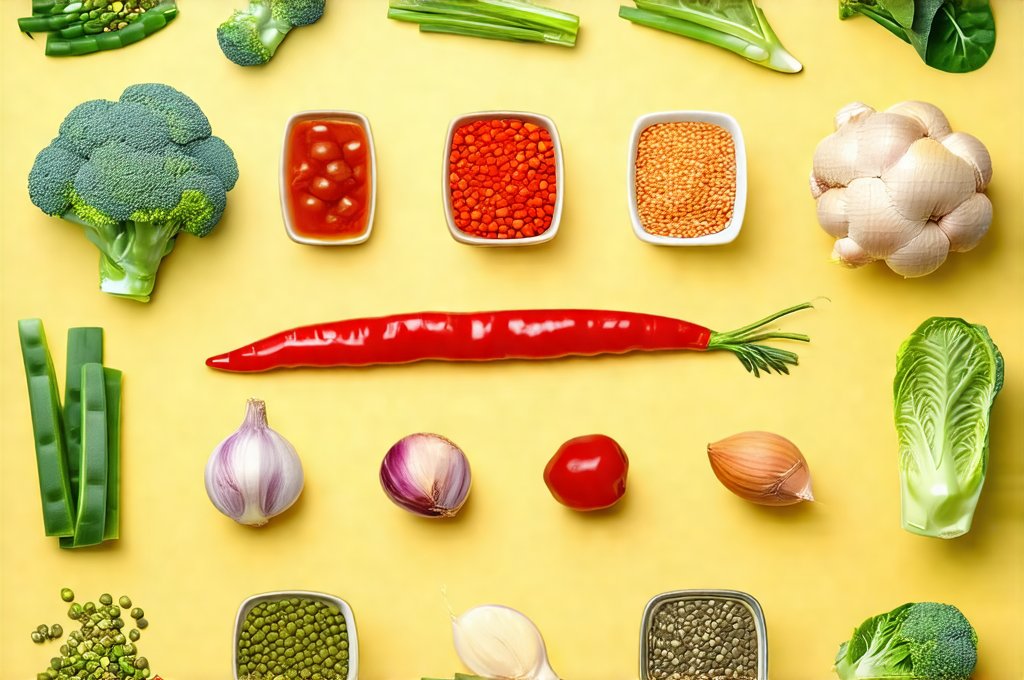The gut microbiome – the trillions of bacteria, fungi, viruses, and other microorganisms residing in our digestive tract – is increasingly recognized as central to overall health. It’s not just about digestion anymore; a healthy gut influences everything from immune function and mental wellbeing to nutrient absorption and even chronic disease risk. What we eat profoundly impacts this intricate ecosystem, and building a “gut-friendly” pantry isn’t about restrictive diets or complicated recipes. Instead, it’s about incorporating foods that nourish beneficial bacteria and support a diverse microbial community. Many of these foods are staples you likely already use, or can easily integrate into your regular cooking.
Focusing on gut health is a proactive step towards long-term wellness. It’s about choosing foods that feed the good bacteria in our gut, allowing them to thrive and outcompete less desirable organisms. This isn’t about eliminating entire food groups but rather prioritizing ingredients known to promote microbial balance. A well-stocked pantry filled with these staples empowers you to make choices that support your digestive system and, consequently, your overall health. It’s an investment in preventative care that yields substantial returns over time. If you are unsure what to avoid on grocery runs https://vitagastro.com/what-to-avoid-on-grocery-runs-if-you-have-digestive-issues/ it’s important to do your research.
Building a Foundation: Fermented Foods & Prebiotic Powerhouses
Fermented foods are arguably the cornerstone of any gut-friendly pantry. The process of fermentation naturally creates probiotics – live microorganisms that can positively influence our gut microbiome. These aren’t just found in yogurt; a surprising range of foods benefit from this ancient preservation technique. – Kimchi, with its spicy and tangy flavor, is a Korean staple packed with beneficial bacteria. – Sauerkraut, traditionally made from fermented cabbage, offers similar probiotic benefits. – Kefir, a fermented milk drink, contains a wider variety of probiotics than yogurt. – Kombucha, the fizzy fermented tea, has become incredibly popular for its refreshing taste and potential gut health properties. Incorporating even small amounts of these foods regularly can contribute to microbial diversity. For quick snacks consider reflux-friendly snacks https://vitagastro.com/reflux-friendly-snacks-to-keep-at-your-desk/.
Alongside fermented foods, prebiotics play an equally vital role. Prebiotics are essentially food for your gut bacteria – they’re types of fiber that humans can’t digest but beneficial microbes happily consume. This process fuels their growth and activity, leading to a healthier gut ecosystem. Foods rich in prebiotic fibers include: – Onions and garlic, adding flavor and functional benefits to countless dishes. – Bananas (especially slightly green ones), offering a convenient source of resistant starch. – Oats, providing soluble fiber that supports microbial fermentation. – Apples, with their pectin content acting as a powerful prebiotic. Combining fermented foods with prebiotic-rich foods creates a synergistic effect – you’re feeding the beneficial bacteria and providing them with the fuel they need to flourish.
The beauty of building a gut-friendly pantry is its accessibility. You don’t need exotic ingredients or specialized equipment. Many everyday staples already possess these beneficial properties, and small changes in your shopping habits can make a big difference. Focusing on whole, unprocessed foods is key – the more processed a food is, the more likely it has stripped of its natural prebiotic fiber and potentially contains additives that can disrupt gut health. Prioritizing real food is always the best starting point.
Gut-Friendly Grains & Seeds
Choosing the right grains and seeds can significantly impact your gut microbiome. Refined grains have been stripped of their beneficial fiber, while whole grains retain these crucial components. – Oats are an excellent choice, containing beta-glucan, a soluble fiber that promotes gut health. Opt for steel-cut or rolled oats over instant varieties to maximize their nutritional value. – Quinoa, technically a seed, is a complete protein source and provides both soluble and insoluble fiber. It’s versatile and can be used in salads, side dishes, or as a breakfast alternative. – Brown rice, compared to white rice, retains the bran and germ layers which are rich in fiber and nutrients. If you experience acid spikes https://vitagastro.com/best-pantry-staples-for-managing-occasional-acid-spikes/ it’s important to know how to manage them.
Seeds are nutritional powerhouses packed with fiber, healthy fats, and micronutrients. Flaxseeds and chia seeds are particularly beneficial for gut health due to their high fiber content and omega-3 fatty acids. These can be easily added to smoothies, yogurt, or baked goods. – Hemp seeds offer a complete protein source and provide both soluble and insoluble fiber. – Sunflower seeds contribute healthy fats and vitamin E, further supporting overall wellbeing. It’s important to grind flaxseeds for optimal absorption of their nutrients, as the whole seeds often pass through undigested.
Consider incorporating ancient grains like sorghum or millet into your diet – these are naturally gluten-free and provide a unique source of fiber and minerals. Diversifying your grain intake is key – different grains offer different types of fiber, promoting a wider range of beneficial bacteria in the gut. Remember to read labels carefully and choose whole-grain options whenever possible. To help manage this you may want to check out best grocery items https://vitagastro.com/best-grocery-items-to-keep-on-hand-for-sudden-acid-spikes/ to keep on hand.
The Spice Rack & Herbal Allies
Spices aren’t just about flavor; many possess powerful prebiotic properties or anti-inflammatory compounds that can benefit gut health. – Ginger has been used for centuries to aid digestion and reduce inflammation. It contains compounds that stimulate digestive enzymes and promote motility. – Turmeric, with its active compound curcumin, is a potent anti-inflammatory agent. Combining turmeric with black pepper enhances its absorption. – Cinnamon not only adds warmth and sweetness but also exhibits prebiotic properties, supporting the growth of beneficial bacteria.
Herbs can similarly contribute to gut health. – Mint aids in digestion and can relieve bloating. – Rosemary contains compounds that may protect against intestinal inflammation. – Parsley is rich in vitamins and antioxidants, providing additional support for overall health. Incorporating these spices and herbs into your cooking not only enhances flavor but also adds functional benefits that support a healthy gut.
The Importance of Healthy Fats
Healthy fats play a crucial role in nutrient absorption and can impact the composition of the gut microbiome. – Olive oil, particularly extra virgin olive oil, contains polyphenols with prebiotic effects. These compounds nourish beneficial bacteria and contribute to overall gut health. – Avocado provides both healthy monounsaturated fats and fiber, supporting microbial diversity. – Nuts and seeds (as mentioned previously) are excellent sources of healthy fats, fiber, and micronutrients. How to keep reflux in check https://vitagastro.com/how-to-keep-reflux-in-check-during-high-stress-periods/ during high stress periods is also important to consider.
Avoid excessive consumption of processed oils and trans fats, as these can negatively impact the gut microbiome and promote inflammation. Focus on incorporating whole-food sources of fat – avocados, nuts, seeds, olive oil – into your diet. These provide not only essential nutrients but also support a healthy digestive system. A balanced intake of healthy fats is crucial for optimal digestion and nutrient absorption, ultimately contributing to a thriving gut microbiome.


















